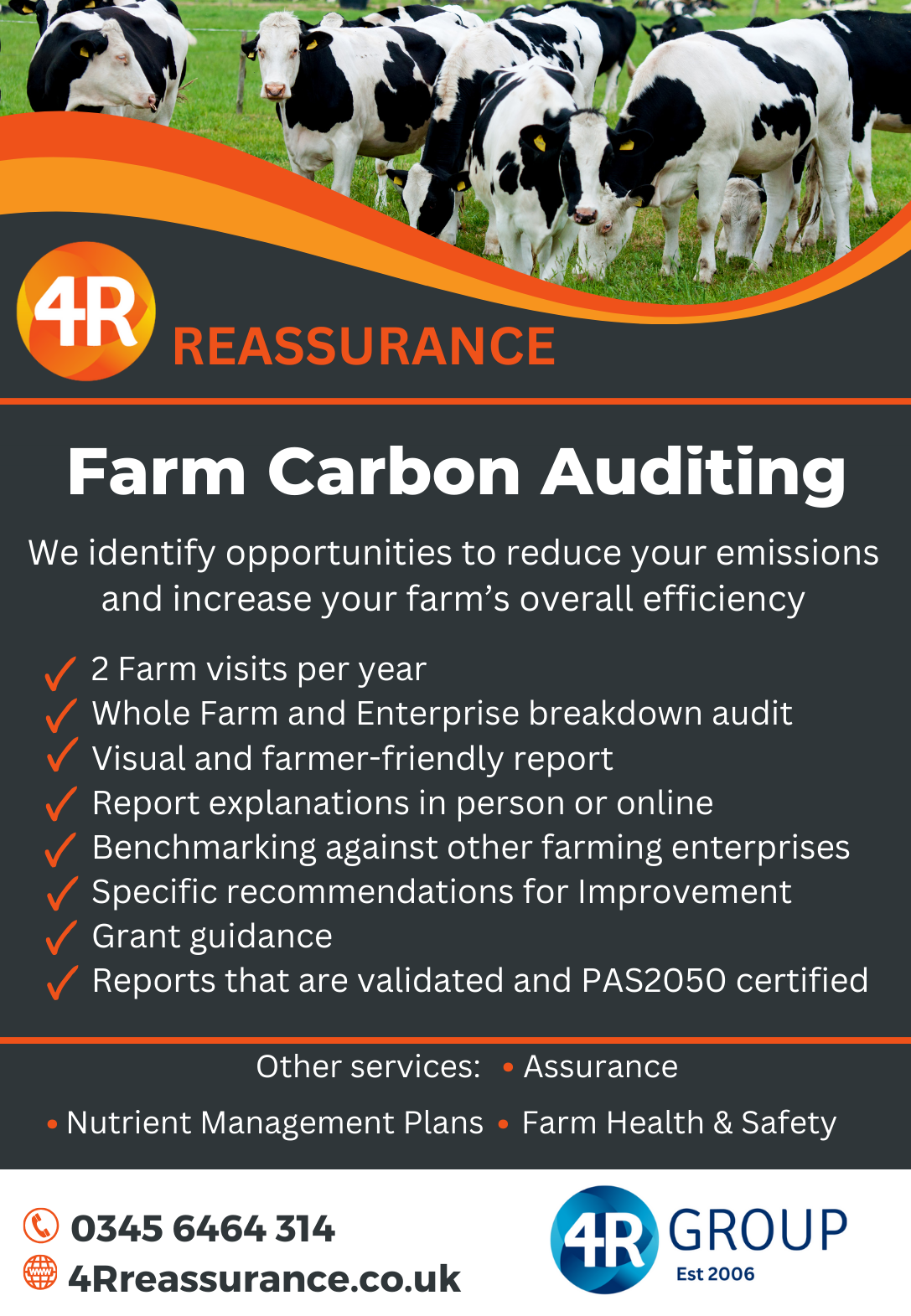Achieving Net Zero by 2050
Achieving Net Zero by 2050 is a challenging goal. In the pursuit of reaching net-zero carbon emissions by 2050, farms are increasingly adopting carbon auditing practices.
These audits are commonly undertaken to meet supply chain requirements, as purchasers and processors utilise on-farm information for their own carbon footprint calculations.
However, these audits often focus solely on specific products, such as milk or beef, leaving farmers without a comprehensive overview of their entire operations and sometimes without a detailed report.
Opting for an independent farm carbon audit can offer numerous advantages. Primarily, it provides farmers with a detailed report that they can use for on-farm reference. This process begins by establishing the farm's current carbon footprint, serving as a baseline for future assessments. The audit considers direct emissions from fuel usage and livestock production, as well as indirect emissions from inputs like fertilisers and crop protection products.
The resulting report, presented in a clear and accessible format, breaks down the data for each enterprise. Benchmarking figures then highlight areas where efficiency improvements can be made, whether it involves reducing the time spent on fattening cattle or incorporating renewable energy for milk cooling.
Regularly conducting these independent audits enables farmers to monitor changes over time and measure their success. This iterative process enhances the likelihood of achieving cost savings and improving overall farm profitability. Financially successful farms often exhibit lower carbon footprints, emphasising the link between efficiency and positive outcomes. Considering the potential future requirement for farm carbon audits, similar to nutrient management plans, farms should contemplate engaging in independent carbon auditing.
4R Reassurance offers independent on-farm carbon auditing services, utilising an IPCC and PAS2050 accredited calculator. The resulting verified reports empower farms to measure, monitor, and enhance efficiency. For more information please read more about our farm carbon audit.
Project Team Leader
Jonathan Lloyd
Agricultural Consultant
Jonathan works closely with farmers to develop their bespoke Nutrient Management Plans and Carbon Reports. Jonathan’s qualifications include FACTS and WAMITAB and he has worked in practical farm management on a range of mixed farms for many years, along with recycling organic materials to land. Therefore, he understands farm systems and can ensure advice is bespoke to individual farms.





